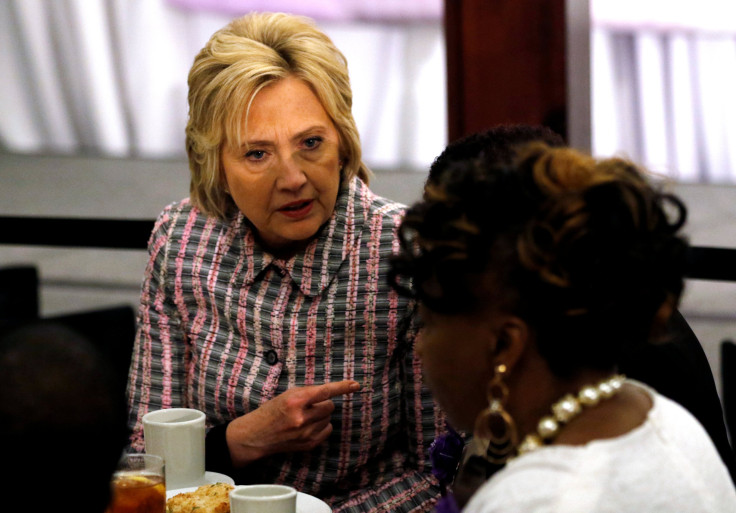Bernie Sanders Not Rejecting Spot On Ticket With Hillary Clinton

With his chances of capturing the Democratic presidential nomination virtually nil, Sen. Bernie Sanders declined to rule out accepting an offer to be Hillary Clinton’s running mate.
With just a handful of primaries left, Sanders trails the former secretary of state in the delegate count by 274 pledged delegates and 486 superdelegates. Clinton needs just 90 of the remaining 939 outstanding delegates, while Sanders would need 850 of them.
Clinton and Democratic leaders have called on Sanders to fold his campaign and throw his support to Clinton. But the Vermont independent on Sunday showed no inclination to do so, saying on CNN’s “State of the Union” his campaign has been driving voter turnout and attracting voters who don’t like the candidates from either of the main parties.
Asked if he’d consider being Clinton’s running mate, Sanders didn’t rule it out. “It’s a little bit early to talk about that,” Sanders told ABC’s “This Week.” Clinton said on NBC’s “Meet the Press” she’s open to a wide variety of possible running mates, including businessmen such as Mark Cuban, who has expressed an interested in the No. 2 position on either ticket.
Would @BernieSanders consider being Hillary Clinton's running mate? @GStephanopoulos asks him. #ThisWeek https://t.co/qn1IX62reM
— ABC News (@ABC) May 22, 2016
Sanders railed against the nomination process but stopped short of calling for the elimination of superdelegates. He complained the system has been more like an “anointment process,” with 400 superdelegates pledging their support for Clinton before the first primary votes were cast. Superdelegates are generally high-ranking party officials who can change candidate allegiance at will.
Sanders made his own pitch for superdelegates, urging them to take “an objective look” to determine which candidate has a better shot at beating presumptive Republican nominee Donald Trump in November.
In an interview on “Meet the Press,” Clinton declared she will be the Democratic nominee and expects Sanders to help her get elected in the fall. Clinton noted that her contest against President Barack Obama in 2008 was much closer than her rivalry with Sanders, but she then did her best to unite the party behind Obama.
“I am going to be the nominee and want to spend my time taking on Trump,” Clinton said, urging Sanders to face the realities of the process. Unveiling what could be her new campaign slogan, Clinton said, “We are stronger together.” She said whatever the differences there are between hers and Sander’s positions on issues, “they pale in comparison to Donald Trump, and I think most of his [Sanders’] supporters understand that as well.”
Clinton called Trump’s rhetoric hollow and dangerous and said he is unqualified to be president. She also faulted Trump for not releasing his income tax returns to prove he is as successful as he says he is, and she chastised him for not paying any federal taxes on the two returns that are public.
“We have to get below the hype and get to the reality,” she said.
With two polls released Sunday indicating voters are dissatisfied with the prospects of either a President Clinton or President Trump, former Massachusetts Gov. William Weld pushed for voters to pay more attention to the Libertarian option.
Weld, who is being touted for the No. 2 spot on a Libertarian ticket headed by former New Mexico Gary Johnson, said on “State of the Union” he is not concerned about becoming a spoiler, saying he and Johnson represent a “mix of policy positions not represented by either major party.”
He said Libertarians can push Democrats to show more fiscal restraint and push the GOP to be more liberal on social issues, saying Republicans need to get over their “squeamishness” about such issues as abortion and same-sex marriage.
Weld also said he stands by his comparison of Trump’s pledge to round up undocumented immigrants for deportation to Kristallnacht, the Nazi attack against Jewish businesses and synagogues in Germany and Austria that preceded the Holocaust.
“If we don’t remember, we will forget,” said Weld, who spent five years as a member of the U.S. Holocaust Commission.
© Copyright IBTimes 2024. All rights reserved.












